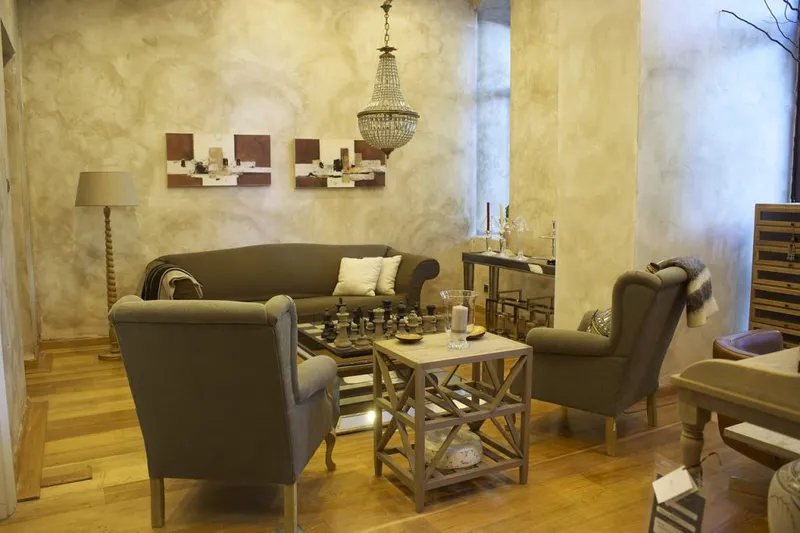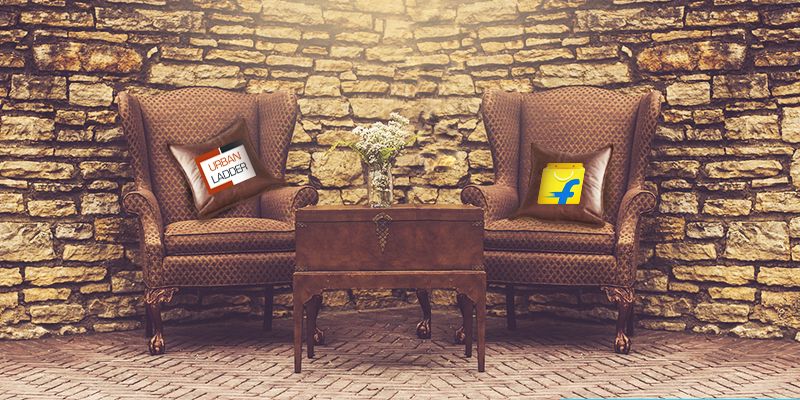Flipkart and Urban Ladder - a match made in retailer-heaven?
As rumours of Flipkart acquiring Urban Ladder make the rounds at regular intervals, a quick analysis shows it may not be a bad idea, and a win-win or both entities.

Right when e-commerce market leader Flipkart is pushing the furniture category in its race to capture newer markets, reports have surfaced that it is scouting major acquisitions – including online furniture seller Urban Ladder.
Though Urban Ladder maintains there is no truth to the reports, a match between the two could be mutually beneficial.
After establishing a strong hold in the gross merchandise value catalyst categories like consumer durables and mobile phones, Flipkart now also commands a large chunk of the online fashion pie. The company as a 35 percent market share by itself, and 70 percent with subsidiaries Myntra and Jabong. The next categories that the company plans to focus on are grocery and furniture – both tough markets with established players.
Shortly before Diwali, Flipkart re-launched its furniture category at scale – it currently delivers to 84 cities – as it attempts to get new shoppers online, and also increase spends of existing customers. The 10-year-old company had launched the category two years ago as a pilot to test the market. About a year ago, it started building infrastructure, creating a network of suppliers and putting in place systems and processes to scale up the category.
Flipkart has already got on board furniture brands like Lazy-Boy, Home Town and Peps. It has also got manufacturers from Indian furniture hubs like Jaipur, Jodhpur and Nagpur, besides large international manufacturers in China and Malaysia.
Timing for acquisitions
In early 2012, when Flipkart – backed by Tiger Global and Accel Partners among others - was focusing on electronics and consumer durables as part of building its GMV, it acquired Gurgaon-based online electronics seller Letsbuy.
The category with the highest margins in e-commerce, however, is fashion. In 2014, Flipkart cemented its upper hand in the category with the acquisition of online fashion portal Myntra. Together, Flipkart and Myntra went on to buy another prominent player, Jabong, in 2016.
Immediately after acquiring Myntra, Flipkart also bought stake in consumer services startup Jeeves to provide product repair and after-sales service capability.
You see where I am going with this?
With its focus now on the furniture segment, it makes perfect sense to Flipkart to acquire its fellow Bengaluru-based startup Urban Ladder, which counts Kalaari Capital, SAIF Partners, and Ratan Tata among its investors. Unlike competitor online furniture marketplace Pepperfry, Urban Ladder is a brand that provides selection in categories like mass, mass-affluent, and luxury.
Urban Ladder’s fortune

Cutting down on marketing expenses and curating its designs more efficiently--from 4000 designs to 1200--Urban Ladder claims sales have risen in the last one year. Calling itself a tech-and-design company, Urban Ladder also made a mark with not one but three innovative apps, which it says receives higher conversion rate.
Flipkart, on its part, brought about 600 products across 22 product categories under its quality guarantee scheme, Flipkart Assured. While regular categories go through a six-step quality check process, furniture that is shipped through Flipkart’s logistics arm Ekart will go through a 20-step process.
Also read: How startups got Indian shoppers to buy furniture online
With Urban Ladder, Flipkart will have one more weapon against its rival Amazon India which has been focusing on fashion for a while, and has not pushed its furniture category at large. On the other hand, for Urban Ladder, leveraging Jeeves and Ekart’s capabilities will help enhance its customer experience.
Omnichannel in furniture
Choosing the omnichannel route, Urban Ladder went on to launch an experience centre in its home turf in July. This move was aimed at providing the touch-and-feel experience to the customer. The company also provided virtual reality for products not in the store to show a customer how it would fit in a room of a particular measurement.
Urban Ladder claims its physical store’s revenue per sqft is five times higher than regular furniture stores, and it has been profitable from Day One. The physical store is also a testing ground for new products.

Now, for Flipkart, furniture is a different ballgame altogether – the supply chain and logistics are difficult to crack to say the least, and returns are a nightmare. Flipkart set up separate “tech-enabled furniture logistics” under Ekart, as it has done for the large appliances category.
Instead of taking the experience centre route, Flipkart is banking on cataloguing and visual technology to ensure customers are not surprised, or shocked, when the product reaches their home. The company will also offer solutions in virtual reality and augmented reality to help customers get a sense of how a piece of furniture will look in their homes.
So, while it sounds like a marriage made in heaven, will Urban Ladder really join the Flipkart Group? Watch this space.







![[Startup Bharat] MyBranch is helping companies like Flipkart set up sales offices in Tier II and III cities](https://images.yourstory.com/cs/2/3fb20ae02dc911e9af58c17e6cc3d915/Startup-11-1598527523085.png)